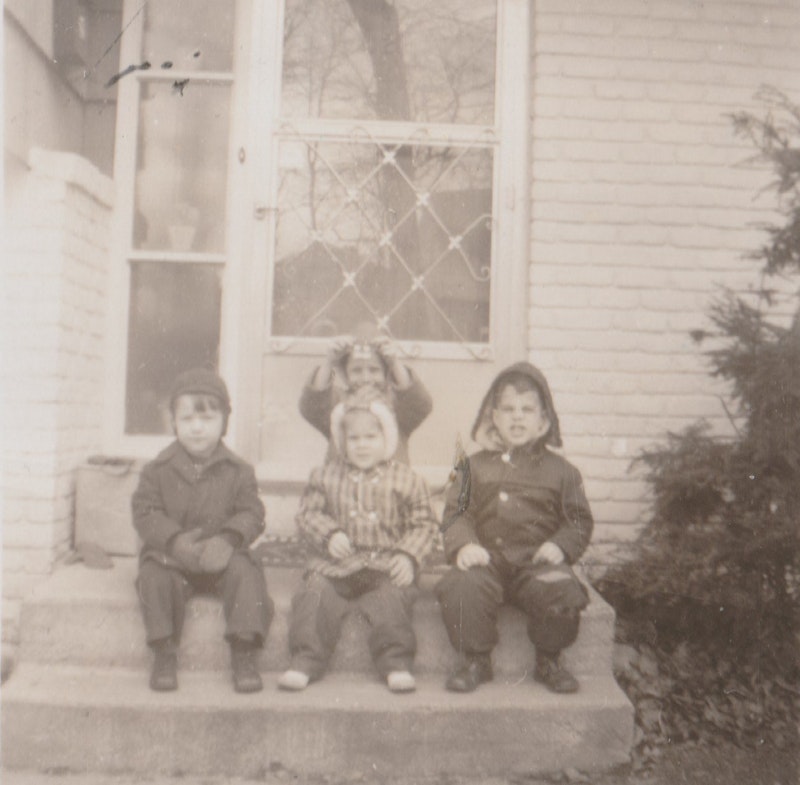As America’s public education system continues to plummet into the land of sick jokes—when will AFT president Randi Weingarten get sacked?—I’ve noticed a lot of old-timers and Gen X social media stalwarts letting the country know what teacher “changed my life.” I suppose for a tiny minority of people that’s true, but generally it’s almost as ridiculous as people (probably the same) claiming that an album or book made them what they are (or aren’t) today. Nineteen years ago, I read a column in a lefty weekly by a self-righteous know-it-all (understated)—who, still bitching about the 2000 election, usually closed his stream-of-nonsense blog posts with “Thanks, Ralph”—saying that as a 15-year-old Bruce Springsteen “changed my life” with his release of Born to Run. Weird, undoubtedly, and if the guy wasn’t such a dick I would’ve, momentarily, felt bad if that were true. I have a number of favorite LPs, with Highway 61 Revisited, at least today, on top of the heap, but none “changed my life.”
Nor did any teacher in the Huntington, New York public schools I attended. Looking back, I’d say the best educator—and, believe it or not, there were dedicated men and women who really were “educators”—I encountered was a straight-laced Irishman named Jerome McGillicuddy, a tall, ruddy-faced Catholic man who taught my 11th grade AP English class. He was tough but fair, and made no apologies for the heavy load of homework every week. I had no bone to pick there—many teachers tried to be friends with their pupils and went easy on grading and number of tests—since I read a lot on my own (some authors classicist McGillicuddy scoffed at, such as Tom Wolfe and Joan Didion), but we got along well.
What’s memorable about “Jerry” was the pre-collegiate curriculum he embraced, including a second-semester term paper that would count for half the grade. Like my buddies in that class, initially I was daunted by the task—my first in high school—but then dove in, selecting Dylan Thomas’ still-marvelous Under Milk Wood as my topic. There was no assignment I took more seriously: it meant repeated trips to the local library, checking out books on Thomas (in short supply) and straining my eyes at the micro-fiche contemporary reviews of the play that was published in 1954, a year after the acclaimed writer died at 39.
One advantage I had over most of my classmates was that I could type, and for three days, after a lot of organization, with notes, newspaper clippings and books spread out on the floor, I banged out copies of the essay on an old Royal at the dining room table, using white-out and carbon paper, and was finally satisfied with the 10 pages I turned in. I’m not sure if it was deserved, but Mr. McGillicuddy gave me an A, and took five minutes for a private conversation, in which he expressed his pleasure that I’d worked hard on the subject, and suggested I major in English at college. My self-confidence was high, perhaps obnoxiously so, but his encouragement put a spring in my step. Nonetheless, it didn’t “change my life.” That I remember his name 53 years later isn’t insignificant, but then again—talk about a cluttered mind—I could rattle off the names of 90 percent of my teachers from kindergarten to 12th grade.
However, unlike my son Nicky, whose pre-five-years-old memory is flabbergasting, my own recollections of life before school started are gauzy at best. Two exceptions: as a toddler my dad plucked me out of a threatening wave at Jones Beach, something I dreamed about often as kid (and for some reason Jesus Christ is present, giving me water from a pouch, which makes no sense). And I have a blurry vision of eating birthday cake and opening a Donald Duck present when I turned three.
The accompanying photo on a winter day (I’m on the left) at the porch of our house is a mystery. I recognize Kenny and Laurie McGuire, but not the kid at top, but why it was recorded for posterity is anyone’s guess; it must’ve been snapped by one of my brothers or mom, since my dad would’ve been working. I’ve no idea whether my companions on that day are still alive or what became of them. Truthfully, I don’t really care one way or the other, for they didn’t “change my life,” even though, unconsciously, there was no doubt I was born to pick winners and losers, get lost in the rain, and mix Texas Medicine and railroad gin.
Take a look at the clues to figure out the year: Lee Petty wins the first Daytona 500; A Raisin in the Sun opens on Broadway; the first two American soldiers are killed in Vietnam; Howard Hawks releases his masterpiece Rio Bravo; Miles Davis’ Kind of Blue is released; The Wizard of Oz is shown on TV for the second time, and becomes an annual CBS tradition; the Pan American Games are held in Chicago; Matthew Modine is born and Errol Flynn dies; John Knowles’ A Separate Peace and Philip Roth’s Goodbye, Columbus are published; Billy Wilder works with Marilyn Monroe for the last time in Some Like It Hot; Barclays is the first bank to install a computer; Margaret Thatcher becomes a Member of Parliament; Lloyd Price’s “Stagger Lee” is fourth most popular song; and Berry Gordy Jr. founds Tamla Records in Detroit.
—Follow Russ Smith on Twitter: @MUGGER2023

